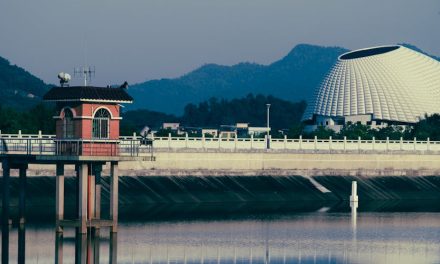Table of Contents
Unleashing the wisdom of ancient Arab leadership.
Introduction
Majlis Al-Hikma, also known as The Wisdom Council, represents a pinnacle of ancient Arab leadership. This esteemed council was renowned for its wisdom, knowledge, and ability to make informed decisions that shaped the course of Arab society. With its roots deeply embedded in Arab history, Majlis Al-Hikma stands as a testament to the rich heritage and exceptional leadership that characterized the ancient Arab world. In this introduction, we will explore the significance and impact of Majlis Al-Hikma, highlighting its role in fostering progress, unity, and prosperity within Arab society.
The Historical Significance of Majlis Al-Hikma in Ancient Arab Leadership

Majlis Al-Hikma, also known as the Wisdom Council, holds a significant place in the history of ancient Arab leadership. This council, which emerged during the Islamic Golden Age, played a crucial role in shaping the political, social, and intellectual landscape of the Arab world. Understanding the historical significance of Majlis Al-Hikma requires delving into its origins, functions, and impact on Arab society.
The origins of Majlis Al-Hikma can be traced back to the reign of the Abbasid Caliph Harun al-Rashid in the 9th century. Recognizing the need for wise counsel in matters of governance, he established this council as a platform for intellectuals, scholars, and philosophers to share their knowledge and insights. The council comprised individuals from diverse backgrounds, including theologians, jurists, scientists, and poets, who were chosen for their expertise and wisdom.
The primary function of Majlis Al-Hikma was to advise the caliph on matters of state, including political, economic, and social issues. The council members engaged in rigorous debates and discussions, drawing upon their vast knowledge and expertise to provide well-informed recommendations. These discussions were not limited to matters of governance but also encompassed various fields of knowledge, such as philosophy, literature, and science. The council served as a hub for intellectual exchange, fostering a culture of learning and innovation.
The impact of Majlis Al-Hikma on Arab society was profound. By bringing together scholars from different disciplines, the council facilitated the cross-pollination of ideas and the synthesis of knowledge. This intellectual synergy led to significant advancements in various fields, including medicine, mathematics, astronomy, and literature. The scholars of Majlis Al-Hikma translated and preserved ancient Greek and Roman texts, which would have otherwise been lost to history. These translations not only preserved the knowledge of the past but also laid the foundation for future scientific and philosophical developments.
Moreover, Majlis Al-Hikma played a crucial role in promoting religious tolerance and intellectual freedom. The council members, regardless of their religious or cultural backgrounds, were encouraged to express their opinions freely and engage in open dialogue. This atmosphere of intellectual freedom allowed for the exploration of diverse perspectives and the development of critical thinking. The council’s commitment to intellectual pluralism and religious tolerance set a precedent for future Arab societies, fostering an environment conducive to intellectual growth and cultural exchange.
The legacy of Majlis Al-Hikma extends far beyond the Islamic Golden Age. Its influence can be seen in the establishment of universities and centers of learning throughout the Arab world. The council’s emphasis on knowledge, wisdom, and intellectual exchange laid the groundwork for the development of Arab scholarship and the preservation of cultural heritage. The spirit of Majlis Al-Hikma continues to inspire contemporary Arab leaders and intellectuals, reminding them of the importance of seeking wisdom and embracing diversity.
In conclusion, Majlis Al-Hikma holds a significant place in the history of ancient Arab leadership. Its establishment during the Islamic Golden Age marked a turning point in Arab governance, promoting intellectual exchange, religious tolerance, and cultural preservation. The council’s impact on Arab society was far-reaching, leading to advancements in various fields and shaping the intellectual landscape of the Arab world. The legacy of Majlis Al-Hikma continues to inspire and guide contemporary Arab leaders, reminding them of the importance of wisdom, knowledge, and intellectual pluralism.
Key Principles and Practices of Majlis Al-Hikma in Arab Governance
Majlis Al-Hikma, also known as the Wisdom Council, is an ancient Arab leadership institution that has stood the test of time. This council, which dates back to the pre-Islamic era, has played a crucial role in Arab governance, offering guidance and wisdom to leaders in times of need. The key principles and practices of Majlis Al-Hikma have been instrumental in shaping the Arab world and continue to be relevant in modern times.
One of the fundamental principles of Majlis Al-Hikma is inclusivity. The council is composed of individuals from diverse backgrounds, including scholars, poets, and tribal leaders. This diversity ensures that different perspectives are considered when making important decisions. By including representatives from various sectors of society, Majlis Al-Hikma promotes a sense of unity and fosters a collective approach to governance.
Another key principle of Majlis Al-Hikma is the emphasis on consultation. The council serves as a platform for open and honest discussions, where members can freely express their opinions and provide valuable insights. This practice of consultation allows for a thorough examination of issues and ensures that decisions are well-informed and well-rounded. It also promotes transparency and accountability, as leaders are held responsible for their actions and decisions.
Furthermore, Majlis Al-Hikma values the preservation of tradition and heritage. The council recognizes the importance of drawing upon the wisdom of the past to inform present-day governance. By studying the experiences and lessons of previous generations, Majlis Al-Hikma ensures that history is not forgotten and that mistakes are not repeated. This commitment to tradition helps maintain cultural identity and fosters a sense of continuity in Arab governance.
In addition to these principles, Majlis Al-Hikma also follows certain practices that contribute to its effectiveness. One such practice is the cultivation of knowledge and intellectual growth. Members of the council are encouraged to engage in continuous learning and to stay updated on various fields of knowledge. This commitment to intellectual development ensures that the council remains well-informed and capable of providing informed advice to leaders.
Another important practice of Majlis Al-Hikma is the promotion of justice and fairness. The council strives to uphold principles of equity and equality, ensuring that decisions are made in the best interest of all members of society. This commitment to justice helps build trust and confidence in the leadership, as people feel that their voices are heard and their rights are protected.
Lastly, Majlis Al-Hikma places great importance on the concept of consensus. The council aims to reach a collective agreement on important matters, taking into consideration the opinions and concerns of all members. This practice of consensus-building fosters a sense of unity and cooperation, as decisions are made collectively rather than imposed from above. It also ensures that the council operates in a democratic and participatory manner.
In conclusion, Majlis Al-Hikma embodies the best of ancient Arab leadership. Its key principles of inclusivity, consultation, preservation of tradition, and practices of knowledge cultivation, justice promotion, and consensus-building have shaped Arab governance for centuries. These principles and practices continue to be relevant in modern times, offering valuable lessons for leaders around the world. Majlis Al-Hikma serves as a testament to the wisdom and effectiveness of ancient Arab leadership, and its legacy continues to inspire and guide leaders today.
Lessons Learned from Majlis Al-Hikma for Modern Leadership
Majlis Al-Hikma, also known as the Wisdom Council, was an ancient Arab institution that exemplified leadership at its best. This council, which existed during the Islamic Golden Age, was a gathering of scholars, philosophers, and intellectuals who advised the caliphs on matters of governance, policy-making, and societal issues. The lessons learned from Majlis Al-Hikma are still relevant today and can provide valuable insights for modern leadership.
One of the key lessons from Majlis Al-Hikma is the importance of diversity in leadership. The council consisted of individuals from various backgrounds, including different schools of thought, religions, and ethnicities. This diversity allowed for a wide range of perspectives and ideas to be considered, leading to more informed decision-making. In today’s globalized world, where diversity is increasingly recognized as a strength, this lesson is particularly relevant. Leaders should strive to create diverse teams that bring together individuals with different experiences, knowledge, and perspectives.
Another lesson from Majlis Al-Hikma is the value of intellectual curiosity and lifelong learning. The members of the council were renowned scholars who were constantly seeking knowledge and engaging in intellectual debates. They were not content with their existing understanding but instead sought to expand their horizons. This commitment to learning and intellectual growth is a trait that modern leaders should emulate. In a rapidly changing world, leaders must be open to new ideas, willing to challenge their own assumptions, and continuously learn from others.
Furthermore, Majlis Al-Hikma demonstrated the importance of collaboration and consensus-building. The council operated on the principle of shura, or consultation, where decisions were made through collective deliberation and consensus. This approach ensured that all voices were heard and that decisions were made in the best interest of the community. In today’s complex and interconnected world, leaders cannot afford to make decisions in isolation. They must actively seek input from others, foster a culture of collaboration, and strive to build consensus among diverse stakeholders.
Additionally, Majlis Al-Hikma emphasized the value of ethical leadership. The council members were not only knowledgeable but also known for their integrity and moral character. They were guided by principles of justice, fairness, and compassion. This emphasis on ethical leadership is particularly relevant in today’s world, where trust in leaders is often lacking. Leaders must prioritize ethical conduct, transparency, and accountability to build trust and inspire others to follow their lead.
Lastly, Majlis Al-Hikma serves as a reminder of the importance of long-term thinking and strategic planning. The council members were not focused on short-term gains or personal interests but rather on the well-being and prosperity of the community. They understood the need for sustainable development and took a holistic approach to decision-making. In today’s fast-paced and often short-sighted world, leaders must resist the temptation of quick fixes and instead adopt a long-term perspective. They must consider the potential consequences of their actions and make decisions that will benefit future generations.
In conclusion, Majlis Al-Hikma, the Wisdom Council of ancient Arabia, offers valuable lessons for modern leadership. The importance of diversity, intellectual curiosity, collaboration, ethical conduct, and long-term thinking are all key takeaways from this ancient institution. By incorporating these lessons into their leadership practices, modern leaders can strive to create inclusive, informed, and ethical organizations that contribute to the betterment of society.
Exploring the Legacy of Majlis Al-Hikma in Contemporary Arab Societies
Majlis Al-Hikma, also known as the Wisdom Council, is an ancient Arab institution that has left a lasting legacy in contemporary Arab societies. This council, which dates back to the Abbasid Caliphate in the 9th century, was a gathering of scholars, philosophers, and intellectuals who advised the caliph on matters of governance, law, and philosophy. The council played a crucial role in shaping the Arab world’s intellectual and cultural heritage, and its influence can still be felt today.
One of the key aspects of Majlis Al-Hikma was its commitment to intellectual diversity. The council brought together scholars from various disciplines, including theology, philosophy, mathematics, and medicine. This diversity of expertise allowed for a comprehensive and holistic approach to problem-solving and decision-making. The council members engaged in rigorous debates and discussions, drawing on their respective fields of knowledge to arrive at well-informed and balanced conclusions.
Another important feature of Majlis Al-Hikma was its emphasis on rationality and critical thinking. The council members were known for their intellectual rigor and their commitment to evidence-based reasoning. They rejected dogma and superstition, instead relying on empirical evidence and logical arguments. This commitment to rationality and critical thinking was a cornerstone of the council’s success and contributed to the advancement of knowledge and understanding in the Arab world.
The Wisdom Council also played a significant role in preserving and translating ancient Greek and Roman texts. During the Abbasid Caliphate, the Arab world became a center of learning and scholarship, and the council members were instrumental in translating and preserving the works of ancient philosophers such as Aristotle, Plato, and Socrates. These translations not only preserved the wisdom of the ancient world but also facilitated the exchange of ideas between different cultures and civilizations.
In addition to its intellectual contributions, Majlis Al-Hikma also had a profound impact on Arab society. The council’s emphasis on justice, fairness, and good governance influenced the development of legal and political systems in the Arab world. The council members were known for their commitment to upholding the rule of law and ensuring the welfare of the people. Their ideas and principles continue to shape contemporary Arab societies, providing a foundation for democratic governance and human rights.
Despite its historical significance, the legacy of Majlis Al-Hikma is not widely known or appreciated in contemporary Arab societies. The council’s principles of intellectual diversity, rationality, and justice are often overshadowed by political and social challenges. However, there is a growing recognition of the importance of reviving and reimagining the Wisdom Council’s ideals in the modern context.
Efforts are being made to establish similar institutions that promote intellectual diversity and critical thinking in Arab societies. These institutions aim to foster a culture of open dialogue and debate, where different perspectives are valued and respected. By drawing inspiration from Majlis Al-Hikma, these initiatives seek to address the complex challenges facing the Arab world and contribute to its intellectual and cultural renaissance.
In conclusion, Majlis Al-Hikma, the Wisdom Council, represents an ancient Arab leadership at its best. Its commitment to intellectual diversity, rationality, and justice has left a lasting legacy in contemporary Arab societies. By reviving and reimagining the council’s ideals, Arab societies can tap into their rich intellectual heritage and pave the way for a brighter future. The Wisdom Council’s principles continue to resonate today, reminding us of the importance of critical thinking, open dialogue, and the pursuit of knowledge.
Q&A
1. What is Majlis Al-Hikma?
Majlis Al-Hikma is an ancient Arab leadership council known for its wisdom and expertise in various fields.
2. What was the purpose of Majlis Al-Hikma?
The purpose of Majlis Al-Hikma was to provide guidance and advice to the Arab leaders, ensuring wise decision-making and effective governance.
3. Who were the members of Majlis Al-Hikma?
The members of Majlis Al-Hikma were renowned scholars, philosophers, and experts in various disciplines, chosen for their wisdom and knowledge.
4. What was the significance of Majlis Al-Hikma?
Majlis Al-Hikma played a crucial role in shaping Arab society and governance, promoting intellectual discourse, and preserving knowledge through its members’ expertise and guidance.
Conclusion
In conclusion, Majlis Al-Hikma, also known as The Wisdom Council, represents an exemplary form of ancient Arab leadership. This council, consisting of wise and knowledgeable individuals, played a crucial role in decision-making and governance during the Arab civilization. Through their collective wisdom and expertise, they ensured the well-being and progress of their society. The Wisdom Council serves as a testament to the effectiveness of inclusive and consultative leadership, which can be seen as a model for leadership in various contexts even today.




